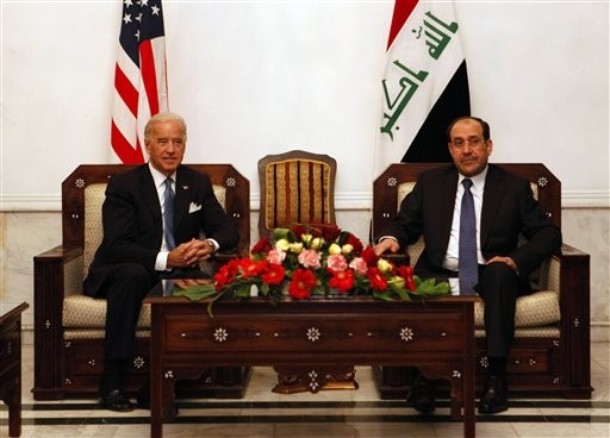
Daniel Larison takes note of Iraq's one million men under arms and writes:
...one of the last things fledgling democracies in countries with a history of authoritarianism need is a massively oversized military and security apparatus. It is often the case in developing countries that the military can serve as an institution that unites and integrates the nation. This will tend to make it the one institution most of the population trusts and respects. However, with greater prestige and respect comes a willingness to intervene in politics when the elected civilians prove themselves to be incapable of governing effectively and/or relatively honestly. When experiments in liberalism, democratization and privatization go awry or are associated with extremely negative economic conditions, public confidence in these things disappears. If democratization is followed by dysfunction, corruption, misrule and lack of basic services, military or authoritarian government becomes very attractive. Given the extent of the sectarian politicization of Iraqâ??s military and police that already exists, and considering the harsh and arbitrary practices of security forces right now, the differences between an authoritarian and a democratic Iraq are not nearly as great as they are supposed to be.
This is true but here's the tricky part: we need to set the bar for Iraq low because it's unrealistic and unreasonable to expect the emergence of a truly liberal, westernized market democracy to spring forth from the ruins of Saddam's bloody tyranny so quickly (with time, hopefully). As galling as a lot of the crowing about "victory" is, it is, to my mind, a good thing that Washington is going to content itself with "good enough" in Iraq.
Pointing out that Iraq is at present not very democratic, that Freedom House presently ranks it as unfree or that Transparency International ranked Iraq as the fourth most corrupt country in the world - these things could easily be turned on their head as a reason to stay in the country for an even longer stretch until we've brought it up to our standard. I think James Dobbins is right when he said the standard of any state-building exercise must be a relative one. A countries progress must be pegged to the status of its neighbors, not some absolute standard of perfection. That this nuance will be lost amidst the crowing is unfortunate, but it's the price we have to pay to reset our strategic position following the war.
(AP Photo)











